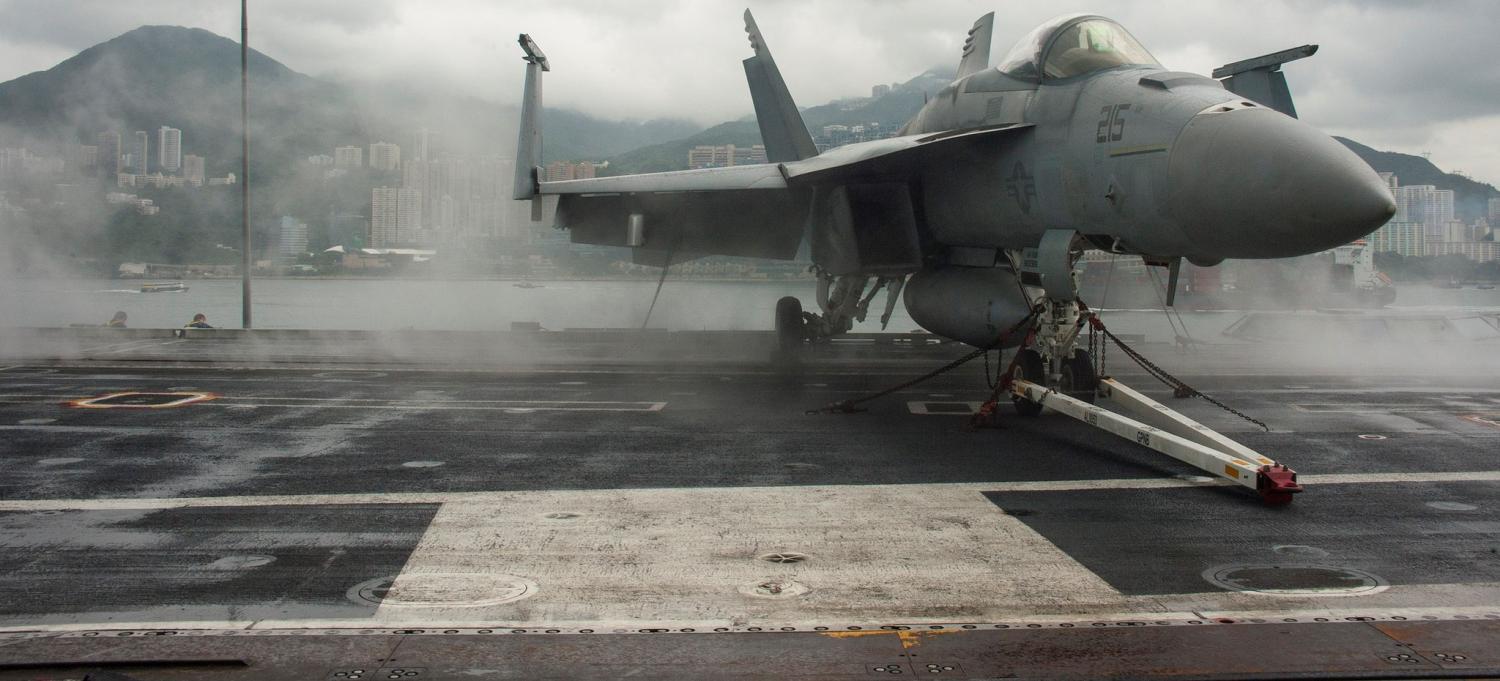The alliance with the US has been one of the foundations of Australian foreign policy since World War II. But in recent years, as James Curran has argued, it's become a shibboleth, subject to 'collective amnesia'. As Curran points out, over its history there have been significant differences as well as agreements between the US and Australia, differences that have made the alliance stronger and healthier.
Judgements about the alliance need to balance both its costs and its benefits; you could call this the 'insurance policy' argument. With DonaldTrump as president, the cost of the policy has risen, and the benefits have decreased.
Even so, the alliance has significant practical benefits, especially in the support it provides for Australia's military and intelligence capabilities.
The strategic benefits for Australia are less tangible and more contested, but boil down to its contribution to Australia's welfare and security.
The ultimate benefit is US protection in the event of military threat to Australia. But though highly consequential, the likelihood of that is very low. More broadly, the key benefit of the alliance for Australia is not in the specific provisions of the ANZUS treaty, but in the support it provides for America's strategic posture globally, and especially in Asia.
The American alliance is more than the ANZUS treaty – a commitment by each member to consult each other and 'act to meet the common danger' in the event of an armed attack in the Pacific area on Australia, New Zealand or the United States. Throughout its history, the alliance has embodied Australia's contribution to Pax Americana ('American peace'), the role played by US leadership in the post-World War II global system. Pax Americana has been the single biggest contributor to the prosperity and peace the world has enjoyed over the past 70 years.
Trump seems not to support or even understand the basic tenets of Pax Americana. Will he trash that legacy, as he seeks to do in so many other areas? Will he provoke China into conflict, and seek to pull Australia in to his fight? How will he manage America's relationships in the region – relationships at the heart of Pax Americana in Asia?
Trump's approach to Asia will be the biggest test for Australia of whether his influence on our security will be benign. It should be the main factor shaping Australia's approach to the alliance: if the US maintains its historical role of benign hegemon in the region, that would be a significant plus in the alliance ledger for Australia, and if not, the value of the alliance to Australia would be greatly diminished.
In a speech in the United States last Friday, Foreign Minister Julie Bishop sensibly noted that most Asian nations want to see more US leadership in the region. So far though, she and other members of the government have been wary of criticising Trump. The government seems to think it too early to be sounding the alarm publicly about the state of the alliance. But one hopes the alarm is ringing loudly behind closed doors.
Australia's most important strategic goal ahead of its support for the alliance is to maximise its economic, political and strategic engagement with our nearest neighbours in the Asia-Pacific. On the economic front, that means maintaining a liberal internationalist order, of which free trade is a key component. On the security front, that means comprehensive engagement with all the countries in the region. On both the economic and the security front, we need to maintain constructive relations with China.
Trump seems not to support key elements of Australia's economic and strategic goals in the region. He has foreshadowed a potential trade war with China, one in which Australia may well become collateral damage. On the security front, Trump, the White House and his nominated Secretary of State Rex Tillerson have intensified criticism of China's behaviour in the South China Sea. If this was part of a careful, deliberate recalibration of US policy towards China it could have merit, but there is no sign of any such careful deliberation.
It often seems that Trump's views shift randomly from one tweet to the next. But as Jessica Mathews has argued in an essay in the New York Review of Books, there are three core principles in American foreign policy over the past 70 years that Trump rejects: the benefit to the US of its network of military and political alliances, the benefits of an open world trading system for American and global prosperity, and faith in the importance of liberal democratic states for promoting world peace.
Underlying Trump's rejection of these principles is a zero-sum view of world; he doesn't see cooperation as necessary and desirable. In both trade and security, Trump seems to think the advantage to one country always comes at a cost to another country.
If Trump's views represented the totality of US foreign policy, we would want to abandon the alliance altogether. He doesn't, and we shouldn't. But we do need to regard it with a great deal more wariness and scepticism. Regardless of Trump's views and actions, we should be doing more to adapt to the new multipolar world order and not rely on Pax Americana to maintain peace in the region.
The rise of Trump to the US presidency has weakened the foundations of the US-Australia alliance, and Australia should be much more hard-nosed and critical about its potential costs and benefits.

